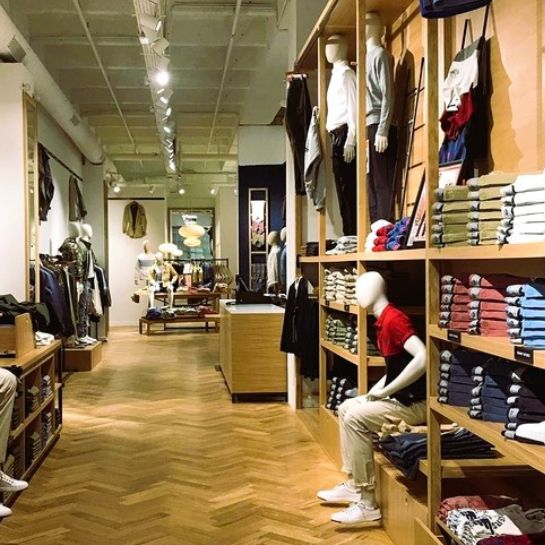31.05.2023
In today’s dynamic world, technology plays a key role in all aspects of our lives, including retail. Stationary stores that want to remain competitive are increasingly using innovative solutions such as augmented reality (AR) and virtual reality (VR) to provide their customers with unique and interactive shopping experiences.
In addition to virtual fitting rooms and interactive product demonstrations, there are many other exciting uses of AR and VR that can enhance the shopping experience for customers.
One interesting solution based on innovation is light maps. Navigation in large stores can sometimes be difficult and frustrating for customers. With AR and VR technology, interactive light maps can be created to help customers find their way around the store more easily and find the products they are looking for. By using a smartphone app or putting on AR glasses, customers can see virtual markers superimposed on reality that show them the way to a selected department, checkout or other important points. This makes it easier to navigate the store and saves customers’ time.
With the help of AR and VR, stores can provide customers with detailed product information in real time. By using a smartphone app or putting on AR glasses, customers can point the device at a product and additional information such as specifications, reviews from other customers, in-stock availability or recommendations of related products will appear on the screen. This not only raises the level of information for customers, but also helps them make an informed purchasing decision.
AR and VR allow stationary stores to create interactive advertisements and promotions that engage customers and stand out from the crowd. For example, a clothing store can create a virtual presentation of a new collection in which customers can see models virtually strolling through the store, selecting clothes and checking their availability and prices. This not only attracts customers’ attention, but also encourages interaction and can boost sales.
AR and VR technologies give stores the ability to personalize and customize to individual customer preferences. For example, a clothing store can use AR to create virtual visualizations of styles that match customers’ preferences. This allows them to see how selected clothes will look on them, as well as receive recommendations and suggestions for other products that fit their style.
One of the most well-known applications of AR and VR in stores is the creation of virtual fitting rooms. Customers can put on VR glasses or use a smartphone app to virtually try on clothes, shoes, glasses or jewelry. This allows them to see how a product will look on them without having to try it on physically. In addition, furniture stores can use VR to show customers how furniture will look in their home interiors, allowing to make virtual arrangements.
AR and VR allow interactive product demonstrations that engage customers’ senses and enable them to get a closer look at the goods on offer. Electronics stores can use VR to create virtual demonstrations of electronic devices, allowing customers to test and explore them before making a purchase. This allows customers to better understand the products’ features and benefits, which can lead them to make a purchase decision.
Augmented reality (AR) and virtual reality (VR) technologies are invariably changing the retail landscape. With AR and VR, it is possible to create interactive and visually advanced environments that engage customers’ senses and enhance their shopping experience.
Ergo Store specialises in designing shop spaces that are on-trend yet comfortable for shoppers. We are open to introducing in-store solutions, using the latest technology, according to the needs of our customers.
You are welcome to contact us!
Photo: pixabay

12.02.2026
Dockers is one of the global apparel brands that Ergo Store has supported for years, delivering brick-and-mortar retail spaces across various parts of Europe. What are the most distinctive features of the brand’s store concept, which until 2025 was part of Levi Strauss & Co.?